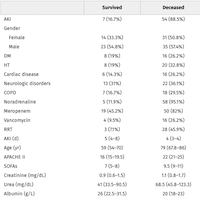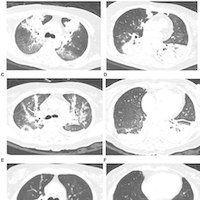More Precise Sepsis Therapy with Distinct Clinical Phenotypes
ncbi.nlm.nih.gov
In this retrospective analysis of data sets from patients with sepsis, 4 clinical phenotypes were identified that correlated with host-response patterns and clinical outcomes, and simulations suggested these phenotypes may help in understanding heterogeneity of treatment effects.
Further research is needed to determine the utility of these phenotypes in clinical care and for informing trial design and interpretation.
The derivation cohort included 20,189 patients with sepsis.
The validation cohort included 43,086 patients.
Of the 4 derived phenotypes, the α phenotype was the most common and included patients with the lowest administration of a vasopressor; in the β phenotype, patients were older and had more chronic illness and renal dysfunction; in the γ phenotype, patients had more inflammation and pulmonary dysfunction; and in the δ phenotype, patients had more liver dysfunction and septic shock.















